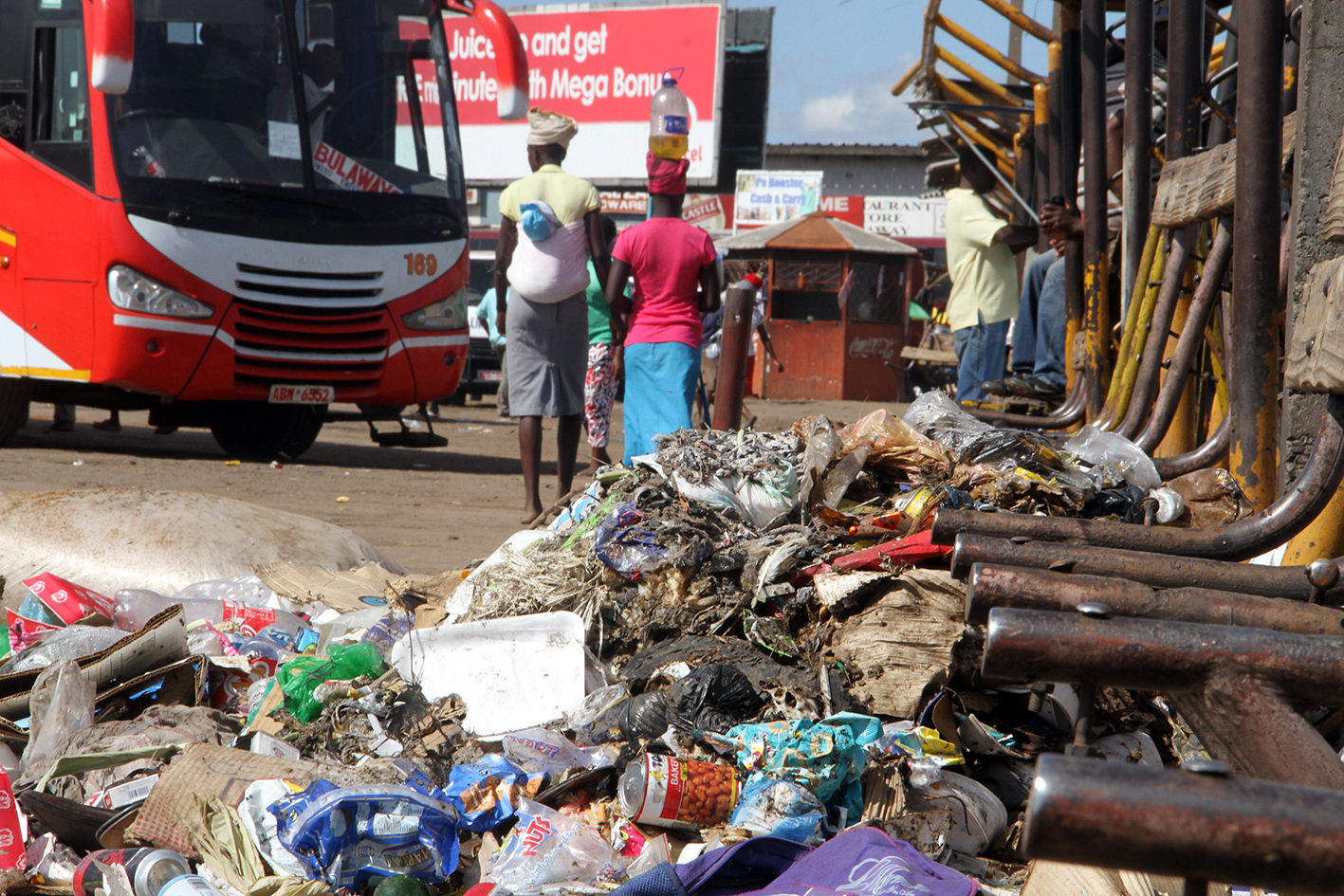
The Sunday Mail

Debra Matabvu
LOCAL authorities that fail to collect waste will be fined US$5 000, while litterbugs will be fined US$500 or slapped with a six-month jail term under new draft regulations, The Sunday Mail has learnt.
The draft Statutory Instrument (SI), which is awaiting gazetting, will make the national clean-up programme, which is held every first Friday of the month, compulsory, with defaulters facing a US$2 000 penalty.
Local authorities will also cease door-to-door refuse collection and now create central points in suburbs, where solid waste will be disposed of by residents and collected regularly by councils.
In addition, local authorities will be required to produce a solid waste management plan each year that will be approved by the Environmental Management Agency (EMA).
EMA officials will be given powers to enforce the law and arrest non-compliant citizens, companies and local authorities.
The regulations are part of a long-term plan that will guide local authorities on solid waste collection and management.
In an interview with The Sunday Mail, Environment, Climate and Wildlife Minister Mangaliso Ndlovu said the penalties will become effective soon.
“As a ministry, we have finalised and are awaiting the gazetting of a Statutory Instrument which will bring sanity in the waste management space,” he said.
“The SI addresses the provision of waste transfer stations for residents to dispose of domestic waste, waste separation at source and compulsory participation in the national clean-up programme.”
According to the draft SI gleaned by this publication, individuals and companies that fail to participate in the clean-up programme will be required to produce valid reasons that exempt them from being fined or sentenced.
“The President of the Republic of Zimbabwe declared the first Friday of the month, from 8am to 10am, to be a national clean-up day,” the draft SI says.
“It shall be the duty of every individual, corporate body, community and institutions to clean up their surrounding areas, places of work, places of worship, educational premises and immediate surroundings, recreational areas, residential areas, vending sites, car parks and car sales, road servitudes and sports and medical facilities.
“Any person, both natural and juristic, who fails to participate in a national clean-up without reasonable cause, of which burden of proof shall lie upon that person, shall be guilty of an offence and liable to a fine not exceeding level 8. Any court convicting a person of this offence shall sentence that person to community service targeting waste management.
“Any person whose surrounding or premises shall be found littered and with accumulated waste dumps and waste material after the national clean-up shall be guilty of an offence and liable to a fine not exceeding level 12. Any court convicting a person of this offence shall sentence that person to community service targeting waste management.”
Under the envisaged plan, local authorities will be mandated to produce a solid management plan for public scrutiny before it can be implemented.
“Thirty days before the end of each calendar year in preparation for the upcoming year, every local authority shall prepare a waste management plan for the area under its jurisdiction, which shall be submitted to the Environmental Management Agency for approval,” the document reads in part.
“The Environmental Management Agency shall within 30 days of receipt of the waste management plan, approve with or without amendment(s).”
Furthermore, local authorities will be obliged to make the environmental management plan available to the public through publication in the Government gazette and newspapers enjoying wide circulation, as well as at EMA’s offices throughout the country before the first day of the following month.
The SI adds: “Any local authority that fails to submit its environmental management plan for public inspection before the first day of the following month shall be guilty of an offence and liable to a fine not exceeding level 12.”
Further, local authorities will be mandated to design waste disposal points to provide for waste separation and help curb the spread of diseases from the point.
“Every local authority must provide containers or receptacles for the collection of waste in and around their area of jurisdiction. Ensure the existence of waste transfer centres or points for residents in their areas of jurisdiction to dispose of their domestic waste . . .
“Such waste transfer centres shall be adequately designed and managed to allow for waste separation, reduce generation of odours, mitigate against flying litter, prohibit unauthorised access and mitigate against vector diseases and flies. Ensure regular collection of such waste.”
On litterbugs, the draft SI says a culprit can be liable to “a fine not exceeding level eight (8) or to imprisonment for a period not exceeding six months or to both such fine and such imprisonment”.
Other countries such as Rwanda have regulations that oblige citizens to clean up their neighbourhoods.
In Rwanda, police officers monitor the streets and can stop citizens who do not participate in clean-up campaigns and make them clean up on the spot or pay a fine.
Most urban local authorities, particularly Harare, have been failing to effectively provide basic services to communities, forcing the Government to intervene.
In August last year, President Mnangagwa declared a state of disaster in Harare due to poor waste management by Harare City Council, which saw piles of refuse accumulating in residential areas and the central business district (CBD).
Last month, Government rolled out Operation Chenesa Harare, a major clean-up campaign that removed over 20 000 tonnes of refuse in the CBD and residential areas in two weeks.






